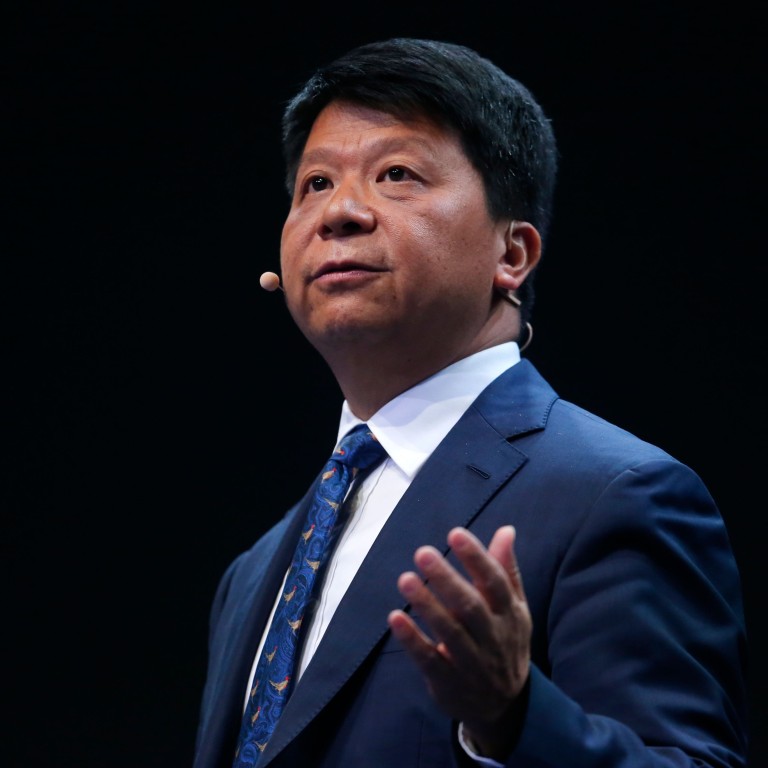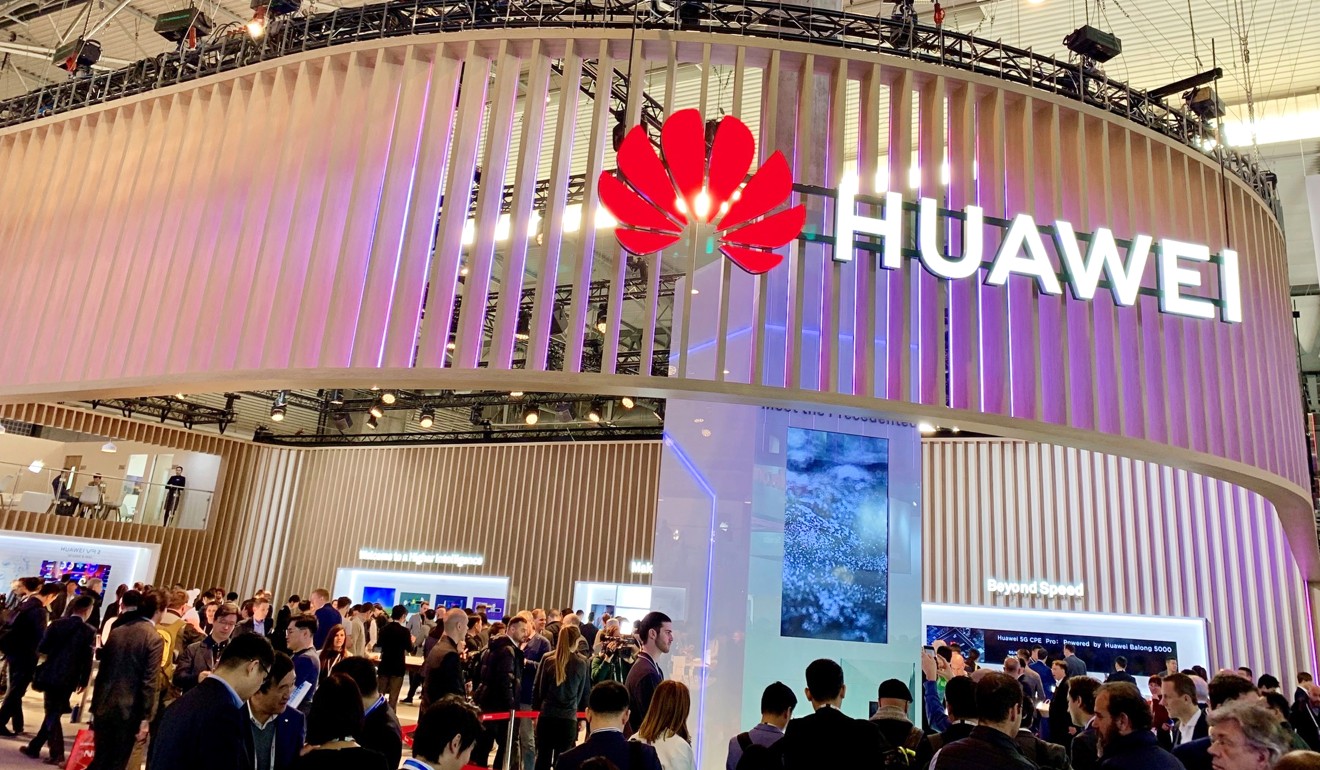
Huawei defends its track record in data security, saying US has no evidence to back up Chinese spying allegations
- Huawei gets almost half of its more than US$100 billion in annual revenue from overseas markets
- With peak data rates up to 20 times faster than 4G, 5G will serve as ‘the connective tissue’ for new mobile applications
Huawei Technologies, the world’s largest telecommunications equipment supplier, declared the US government has no evidence to support accusations that the company’s products can be used to spy for China, while reiterating that the firm “has not and will never plant back doors” to compromise the security of its products.
“There has never been more interest in Huawei. We must be doing something right,” Guo Ping, one of three rotating chairmen at the Shenzhen-based company, said at the start of his keynote speech on Tuesday at MWC Barcelona.
“Of course, the past few months have been a challenge for us. On one hand, our 5G solutions are widely recognised in the industry. On the other hand, there has been a lot of speculation about the security of our 5G solutions,” he said.
Guo’s comments at the world’s biggest exhibition for the mobile industry followed efforts by Huawei founder Ren Zhengfei in recent media interviews to explain that the company will not share data with the Chinese government, that the arrest of his daughter Sabrina Meng Wanzhou in Canada in December was politically motivated, and that there was no way the US can crush Huawei.
The stakes are high for Huawei to make a strong impression at MWC Barcelona because it gets almost half of its more than US$100 billion in annual revenue from overseas markets. Europe, where the company has an estimated 30 per cent of the market, is also under threat because the US is putting pressure on European countries to block the Chinese company, citing national security concerns that Huawei has strenuously and repeatedly denied.
“Huawei is the global leader in 5G,” Guo said. “But we understand innovation is nothing without security.”
He called on the telecommunications industry and governments around the world to work together and implement unified cybersecurity standards.
Adding some levity to his talk Guo asked: “Prism, prism on the wall. Who’s the most trustworthy of them all?”
He said that was an important question to ask in light of the revelations made by National Security Agency whistle-blower Edward Snowden in 2013. Snowden, who remains a fugitive from the US government, had revealed systematic spying done by the US on its citizens and people overseas, under a project code-named Prism.
“We can’t use prisms, crystal balls, or politics to manage cybersecurity. It’s a challenge we all share,” Guo said. “To build a system that we all can trust, we need aligned responsibilities, unified standards, and clear regulation.”
“With 5G, we have made a lot of progress over 4G, and we can proudly say that 5G is safer than 4G,” he said. “As vendors, we don’t operate carrier networks, and we don’t own carrier data. Our responsibility, what we promise, is that we don’t do bad things.”
With peak data rates up to 20 times faster than 4G, 5G will serve as “the connective tissue” for new mobile applications, such as IoT, autonomous cars and smart cities – providing the backbone for the industrial internet, according to a report by consultancy Deloitte.

Huawei already recorded the most number of 5G standard essential patents, with 1,529 at the end of last year, according to recent estimates by German research firm IPlytics.
“That is a key factor in 5G network roll-outs, which could lead to Huawei dominating 5G in areas where it has little market share,” said Paul Haswell, a partner who advises technology companies at international law firm Pinsent Masons.
While that edge in 5G technology helps Huawei’s cause, Guo was keen to slam down the Trump administration’s security concerns.
“Huawei has had a strong track record in security for three decades, serving three billion people around the world,” he said. “The US security accusation on our 5G [technology and products] has no evidence, nothing.”
“The irony is that the US CLOUD Act allows their governmental entities to access data across borders,” he said. “So, for best technology and greater security, choose Huawei.”

